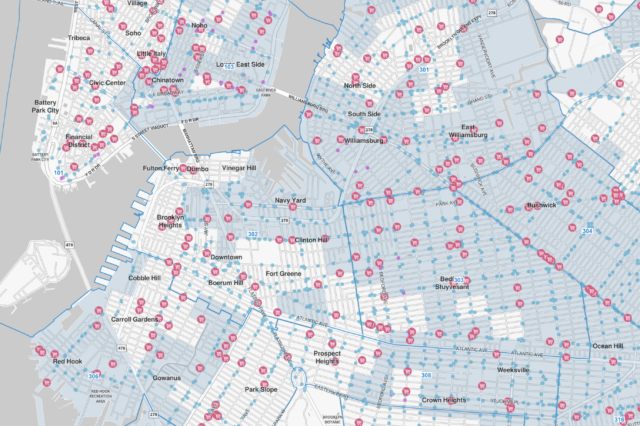Environmental justice (EJ) is the principle that all people, regardless of race, disability status, age, or socioeconomic background, have a right to live, work, and play in communities that are safe, healthy, and free of harmful environmental conditions.
Environmental Justice NYC (EJNYC)
The EJNYC initiative guides the City’s efforts to advance environmental justice in New York City. Those include the development and release of the EJNYC Report and Mapping Tool, plus the forthcoming EJNYC Plan.
In 2017, New York City passed Local Laws 60 和 64 to assess environmental equity issues and develop a plan to incorporate environmental justice into the fabric of City decision-making. This legislation centers on three main products: a report, a mapping tool, and a plan. To carry out this work, the local law mandated that the Mayor and City Council appoint an independent Environmental Justice Advisory Board (EJAB) comprised of nationally recognized EJ advocates and local subject matter experts, 和 that an Interagency Working Group comprised of staff from 19 city agencies be convened.
Development of the EJNYC Report began with a public scoping process that included thousands of comments from New Yorkers. The City, in partnership with the Environmental Justice Advisory Board (EJAB), conducted this process to ensure the resulting report would lay the foundation for addressing the issues EJ communities face. Comments were open to all New Yorkers, though efforts were made to prioritize outreach in the low-income communities and communities of color that have borne the brunt of environmental health issues, the climate crisis, and impacts of the fossil fuel industry. Public input was formalized into a report scope by the Mayor’s Office of Climate & Environmental Justice and the EJ Interagency Working Group, with input from the EJAB. 阅读 工作范围.
The EJNYC Report and Mapping Tool serve as the foundation for the next major milestone required by Local Law 64: the development of a comprehensive citywide environmental justice plan. The EJNYC Plan will propose actions to address environmental injustices in communities of color and low-income communities in consultation with EJ communities.
Local Law 64 of 2017 established an Environmental Justice Advisory Board comprised of external environmental justice leaders (advocates, academics, and public health experts) to advise the City as it implements these laws and to bring this work to New Yorkers through public hearings and other forms of engagement. The EJAB’s charge is to ensure the work is grounded in the lived experiences of New Yorkers in the city’s EJ communities.
Board Members
Peggy Shepard, Chair, Co-Founder and Executive Director, WE ACT for Environmental Justice
Rebecca Bratspies, Professor of Law, CUNY School of Law
Shoshanah Brown, Founder, AIRnyc
Marco Carrion, Executive Director, El Puente
Dr. Luz Claudio, Professor of Environmental Medicine & Public Health, Icahn School of Medicine, Mt. Sinai
Costa Constantinides, CEO, Variety Boys & Girls Club of Queens
Omar Freilla, Co-Founder and Coordinator, Collective Diaspora
Diana Hernandez, PhD, Assistant Professor of Sociomedical Sciences, Columbia University’s Mailman School of Public Health
Anhthu Hoang, New York City Resident
Albert Huang, Senior Attorney, Urban Program, Natural Resources Defense Council
Tina Johnson, Lifelong NYCHA Resident and Community Activist
Morgan Monaco, Executive Director, Red Hook Initiative
Beryl Thurman, Founder/Executive Director, North Shore Waterfront Conservancy of Staten Island
The Environmental Justice Interagency Working Group (IWG) is the implementing body established to deliver on the requirements of the City’s Environmental Justice Laws. Members were selected based on their expertise in environmental policy and data analysis, and their agencies’ contribution to the local environment as well as the health of New Yorkers.
Participating Agencies:
Commission on Human Rights
建筑部
城市规划系
全市行政服务部
教育部
环境保护部
健康与心理卫生部
住房保护和开发部
公园和娱乐部
卫生部 交通部
经济发展公司
法律部
市长经济机会办公室
市长环境协调办公室
市长环境修复办公室
市长管理和预算办公室
市长运营办公室
纽约市房屋管理局
行政审判和听证办公室
技术与创新办公室
首席气候官办公室
主管运营的副市长办公室
布鲁克林展望高地展望公园





